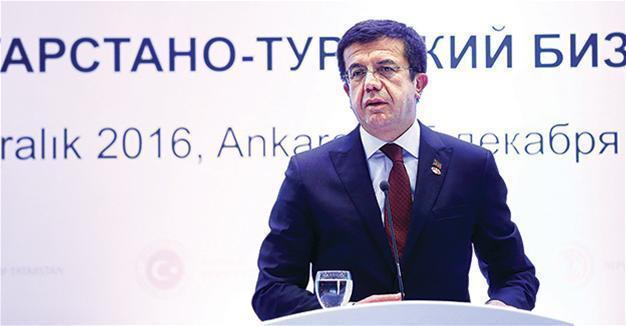New free trade deals, update in Customs Union deal to jumpstart Turkish economy in 2017: Minister
Nuray Babacan - ANKARA

AA photo
An update in Turkey’s Customs Union deal with the EU and the signing of new free trade deals with other countries will help Ankara overcome its economic slowdown in 2017, Economy Minister Nihat Zeybekci has said.Speaking at parliament during annual budget debates, Zeybekci cited both external and domestic causes of the recent decline in the value of the Turkish Lira.
“We are responsible for the exchange rate, inflation, unemployment, which are economic developments in Turkey. As the government, we have never tried to escape. But let’s also look around at the causes,” he said, adding that favorable developments would take place through a series of key steps in the coming year.
“New free trade agreements and the updating of the Customs Union with the EU will be of great importance in 2017,” Zeybekci said.
“We are striving for free trade agreements with the whole world. The biggest hand in our economic jump will be securing free trade with many countries, from Iran to Pakistan, from Japan to Canada or New Zealand … The EU and the Customs Union are very important for us to update and in 2017 we will definitely bring it to an important point. The scope of the Customs Union will expand once the update is over. Industrial products, services, public procurement, agriculture and food will be added to the agreement. Three new separate areas will emerge in our bilateral trade. At present, we make 48.5 percent of our total exports to the EU. This will rise to 60 percent after we update the Customs Union deal,” he added, also addressing criticism over the recent economic slowdown in Turkey.
“Of course, any growth rate below 4 percent is never enough for Turkey. We need to increase our growth above 4 percent. The cabinet and the economic coordination board [EKK] are focusing on these issues of investments and growth as never before,” Zeybekci said.
















